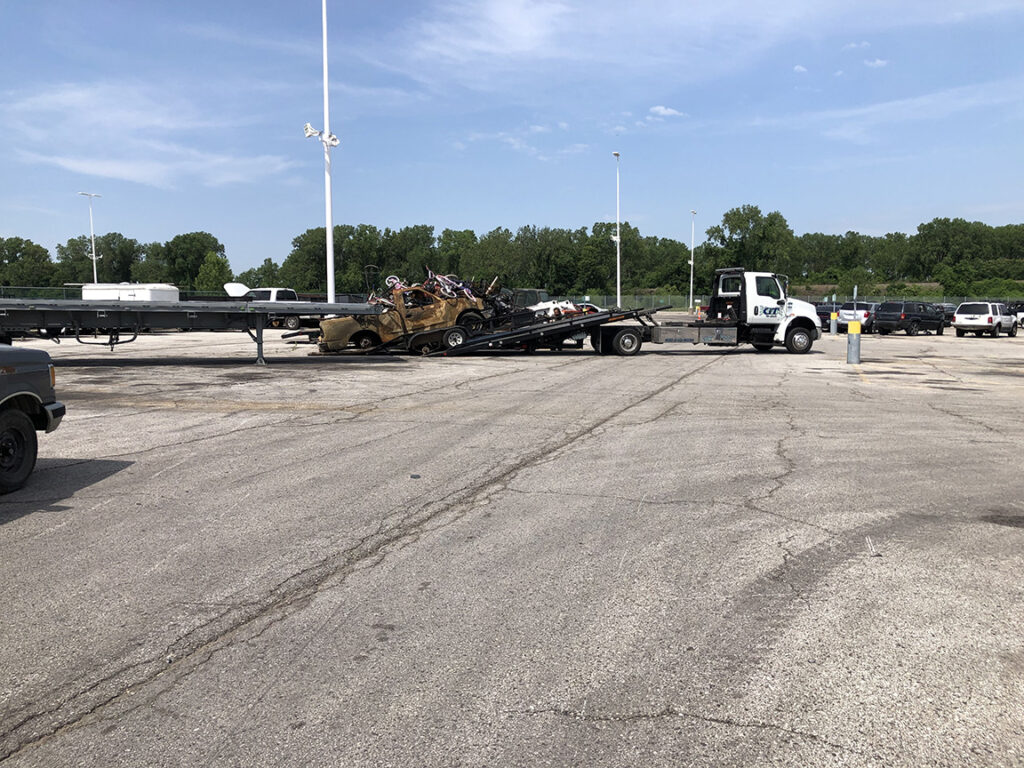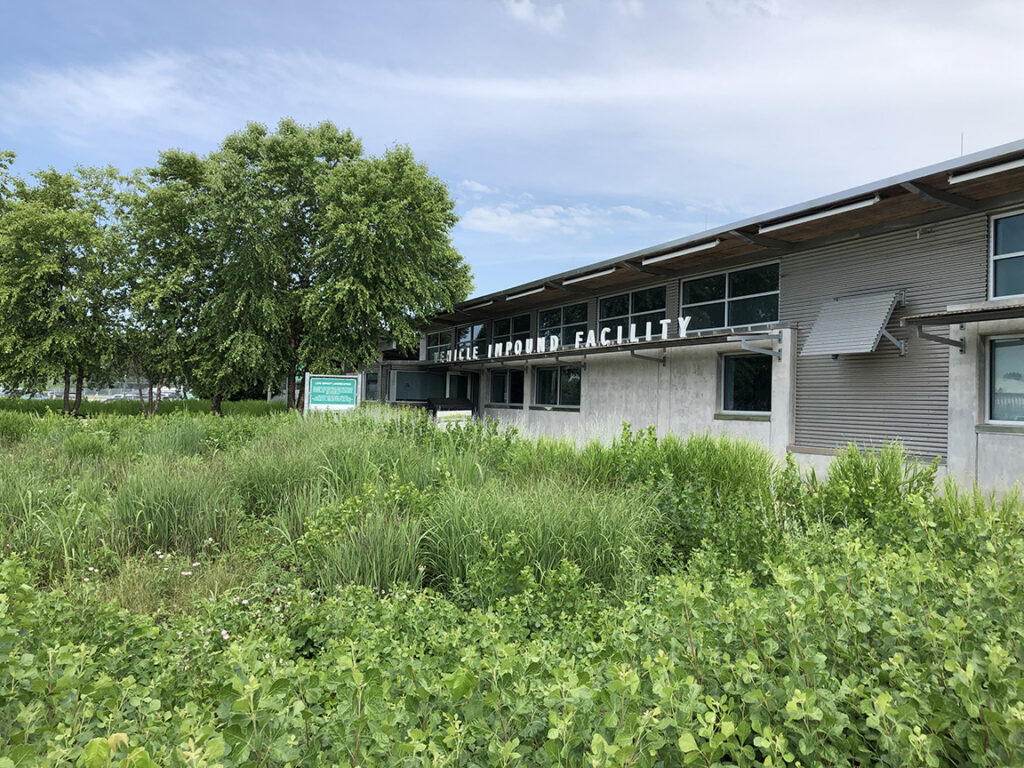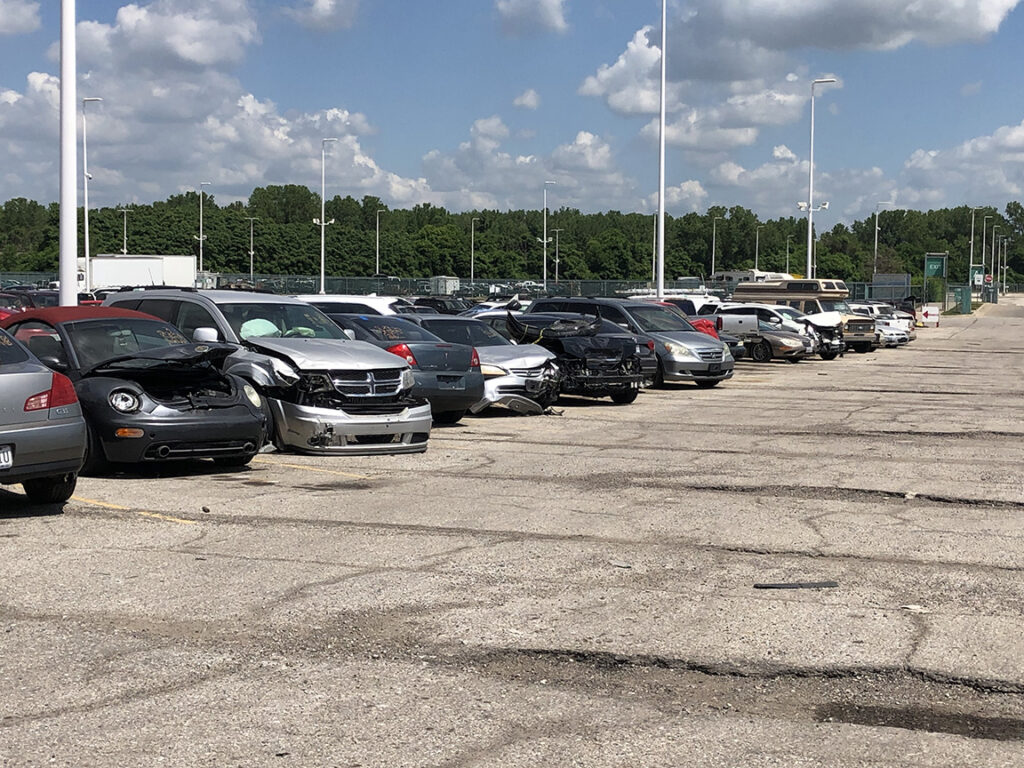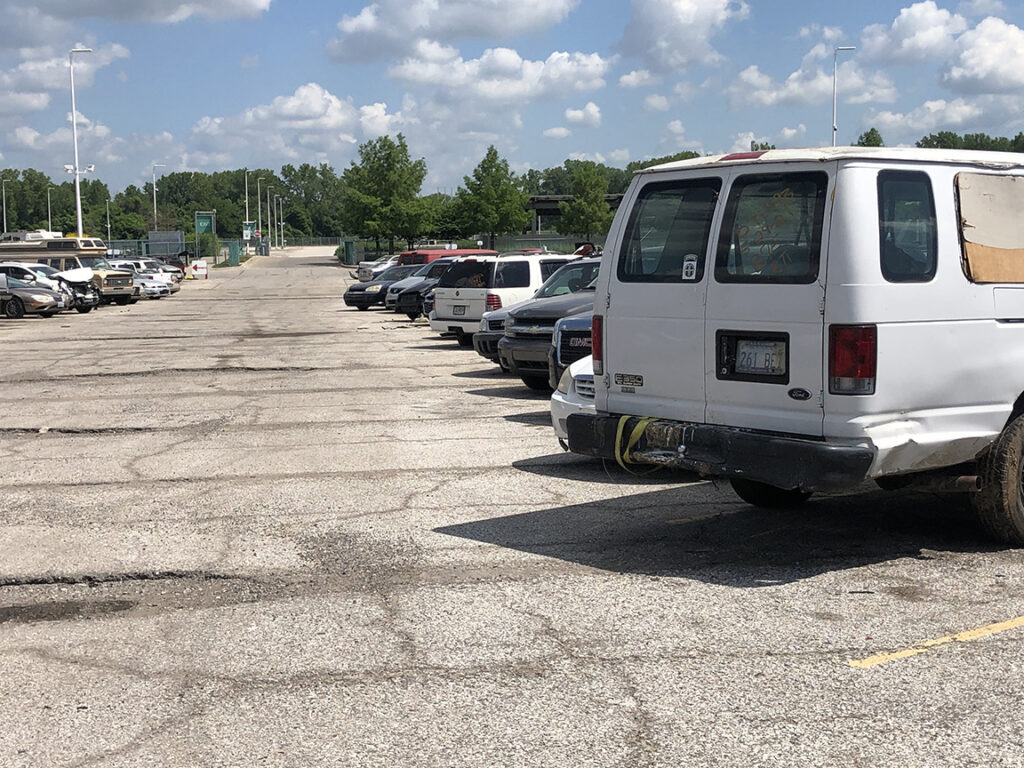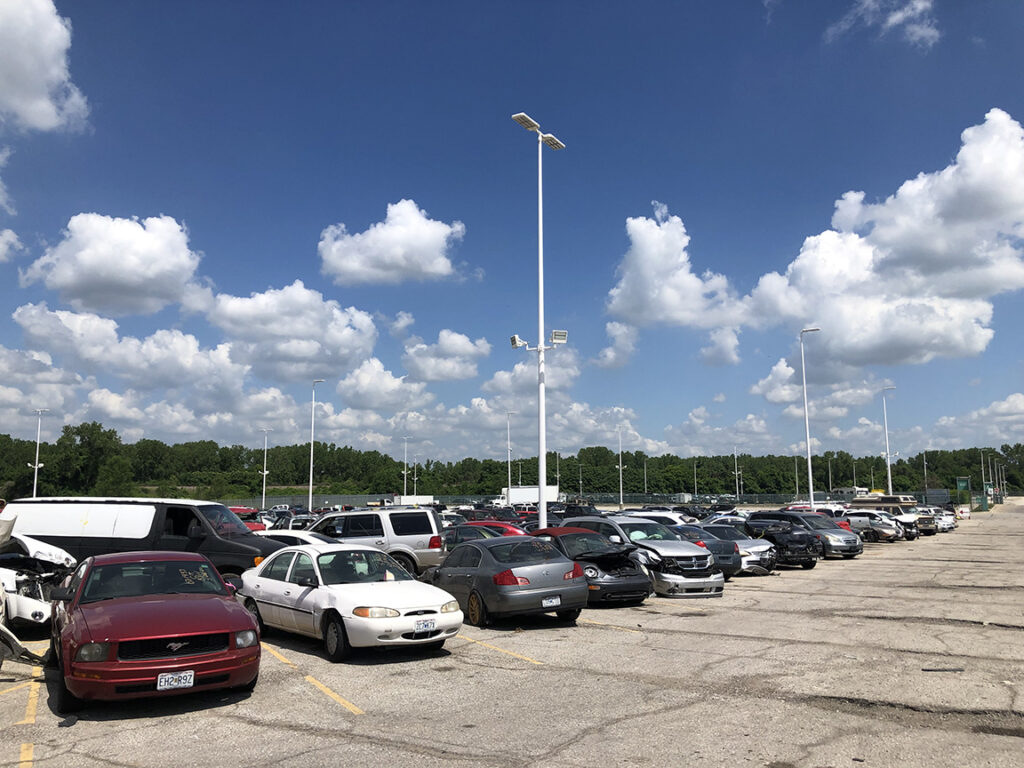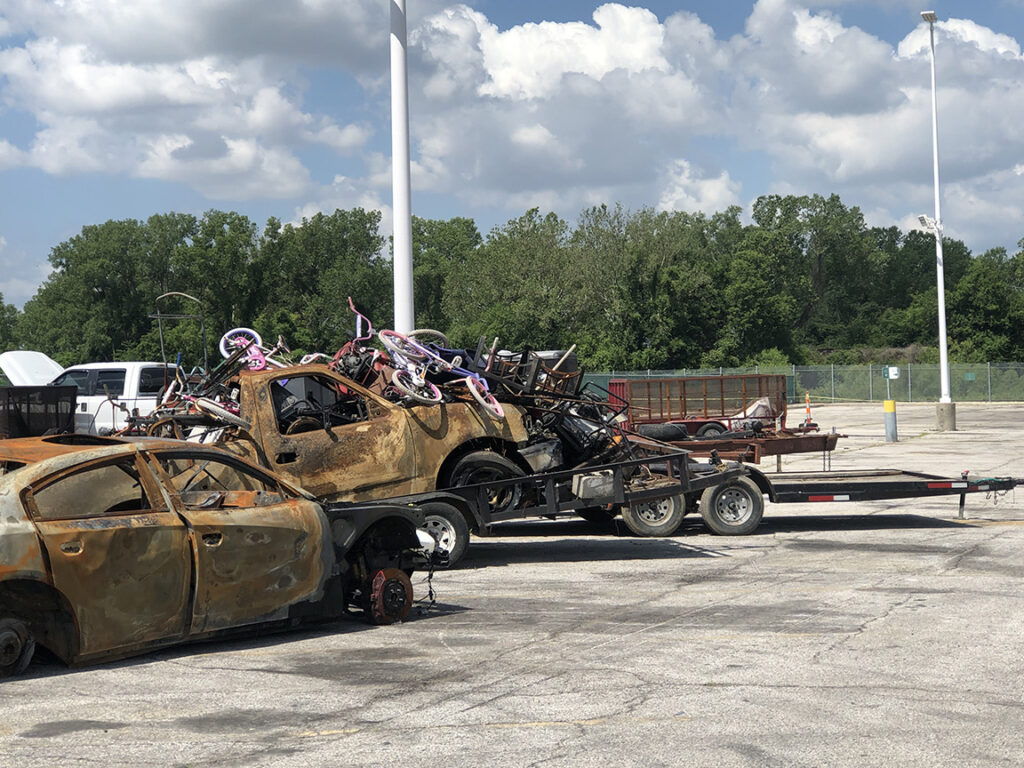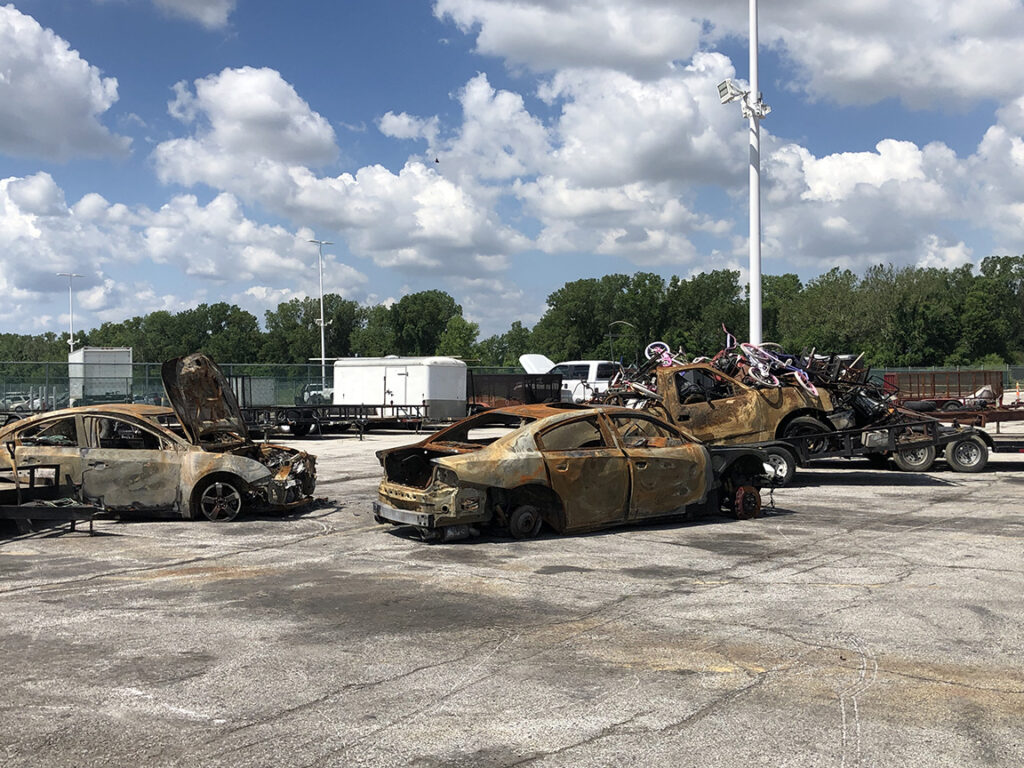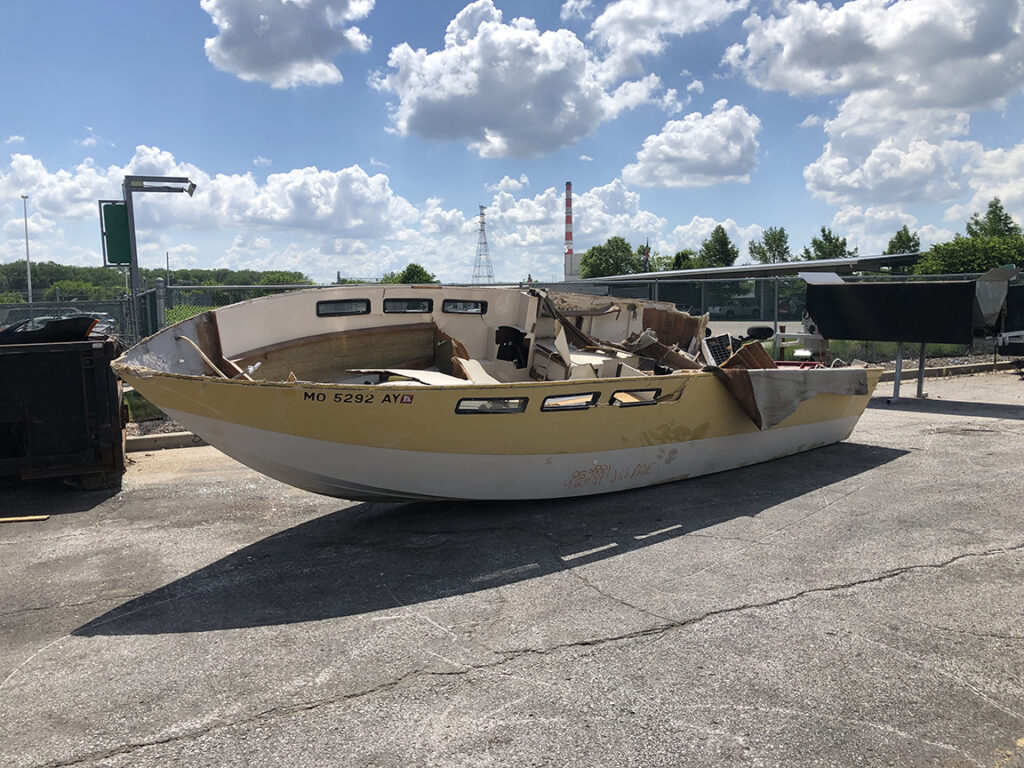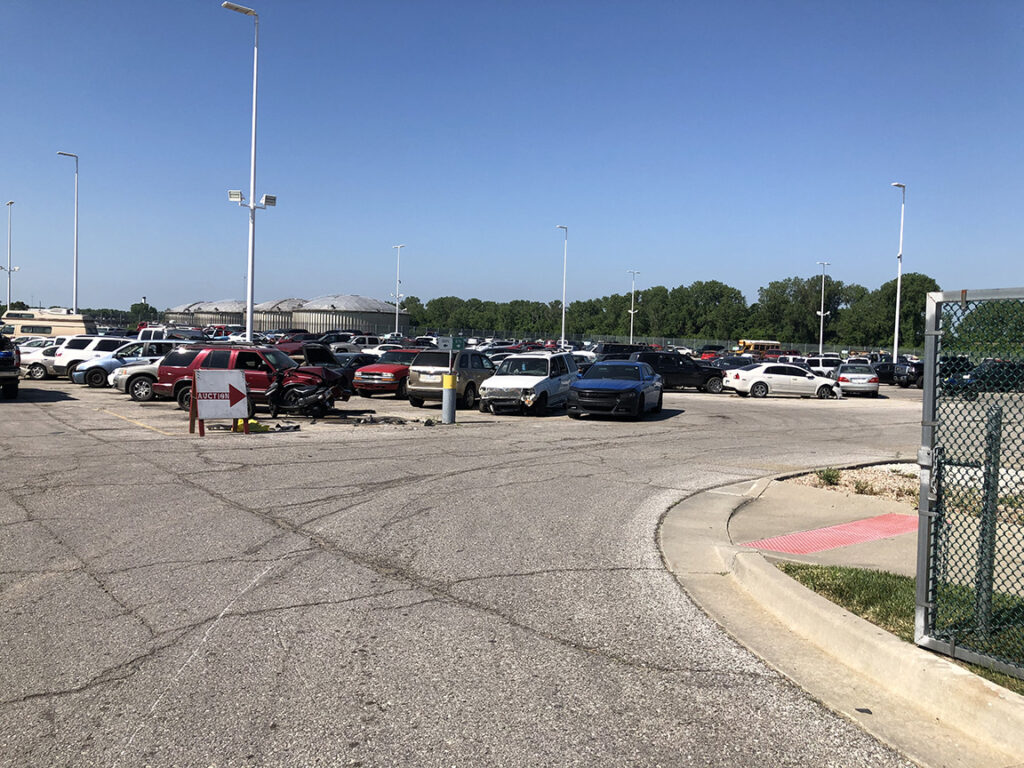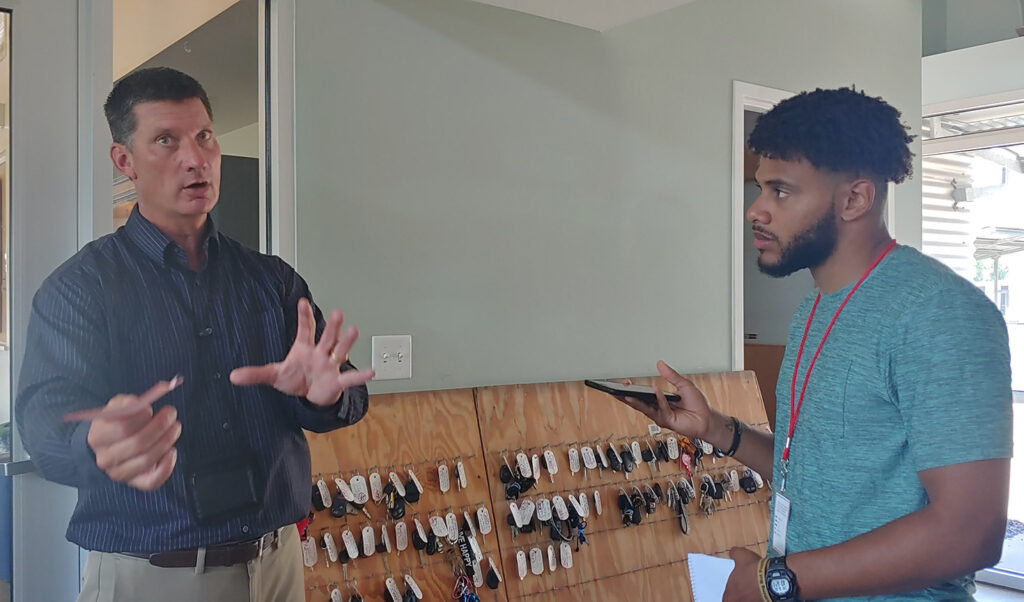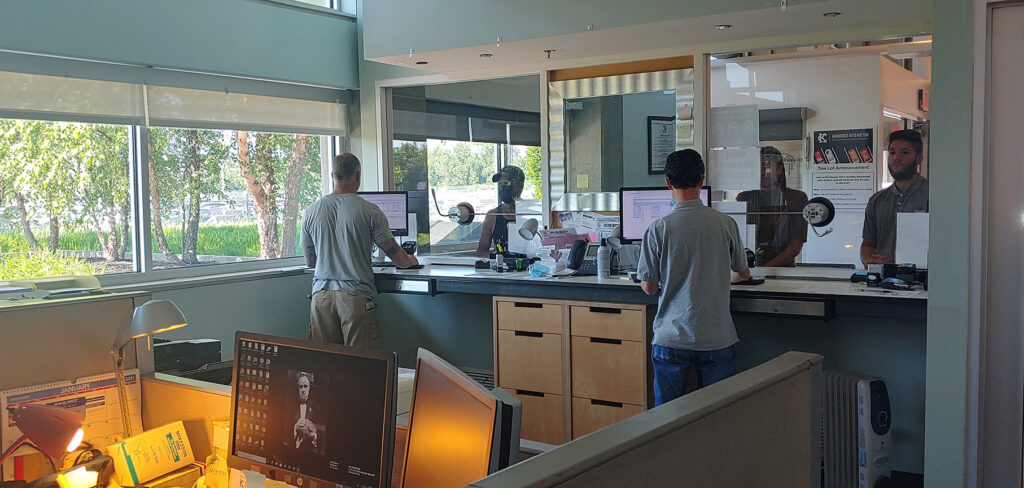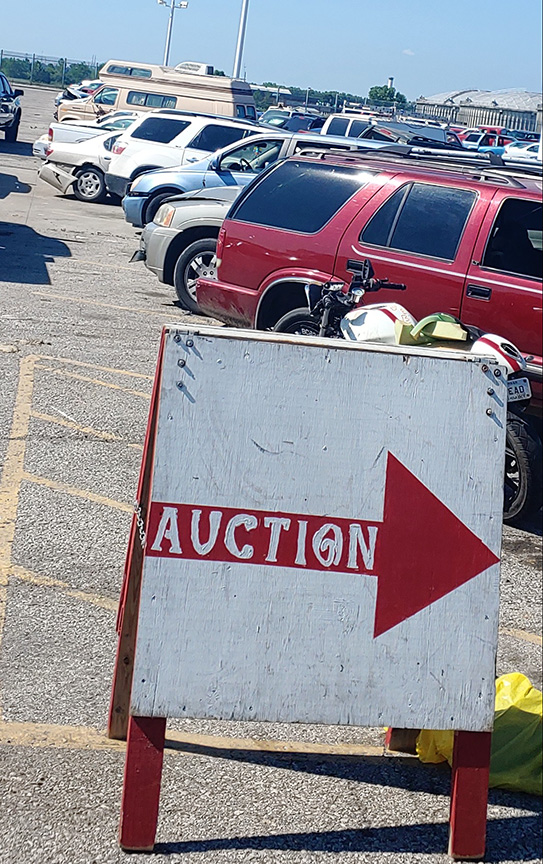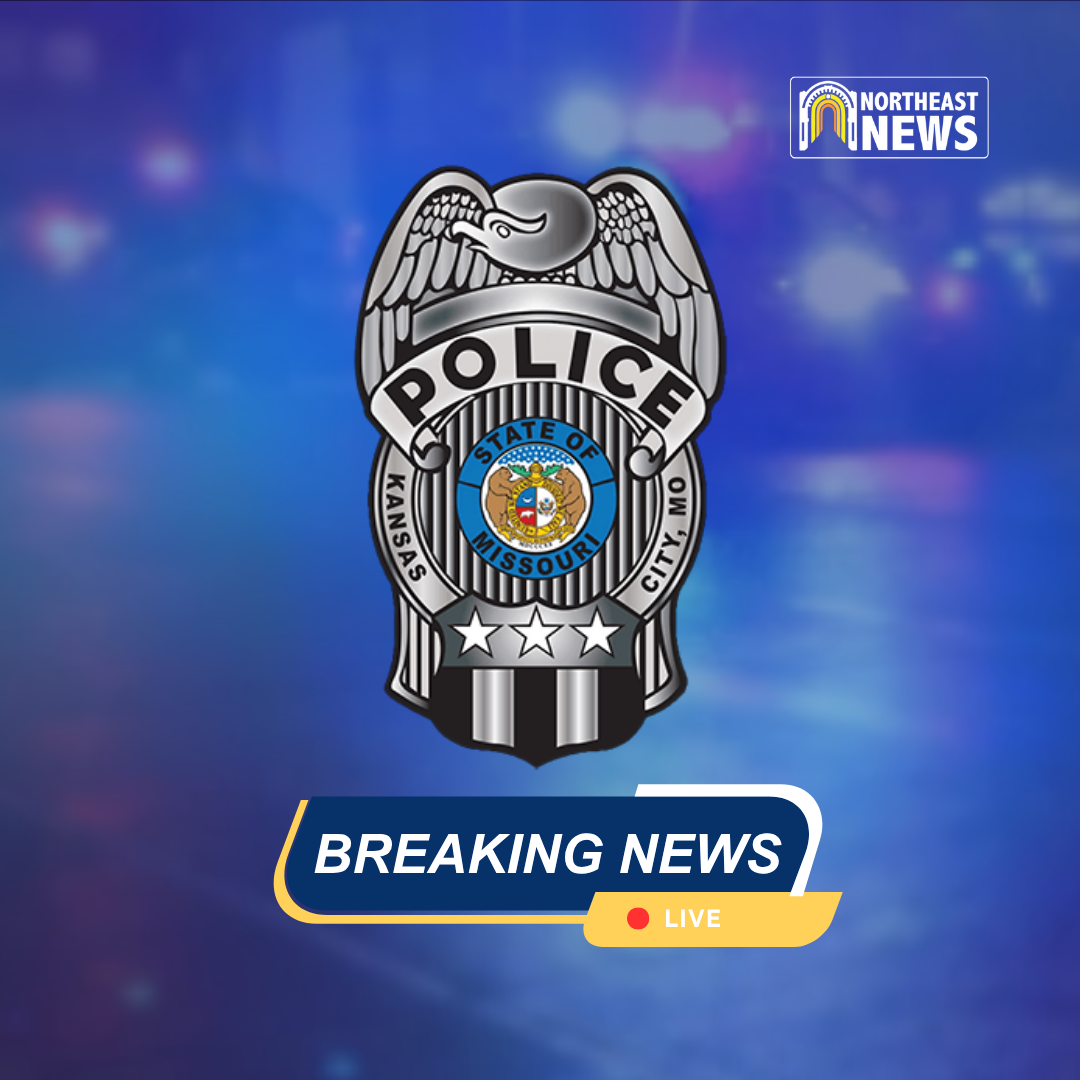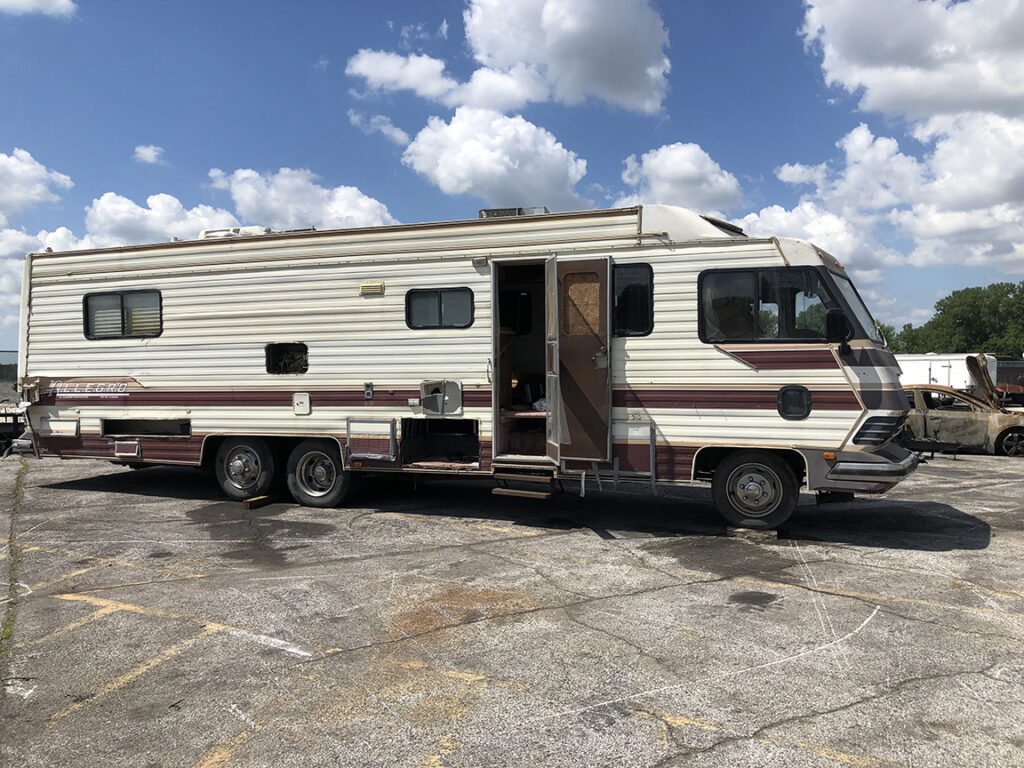
Corbin Smith
Editorial Assistant
The Vehicle Impound Facility at 7750 E. Front St. has the capacity for roughly 1,900 damaged, towed or abandoned cars. However, the lot never quite reaches capacity as cars are taken or auctioned off regularly.
City of Kansas City Tow Services Division Manager Nathan Pare regularly deals with citizens who have recently had their vehicles towed and oversees the lots operation. It’s a line of business with many unhappy customers. Pare receives constant scolding from owners of cars in his lot.
“The worst part of my job is that I get yelled at every day,” Pare said. “I get that every single day. You just got to talk to them and explain to them what happened, what they need to do to fix it and not take anything personally.”
Pare says people get upset with him regularly because they believe that he was scavenging for vehicles to tow. However, the situation is contrary to popular belief.
Pare’s department itself has no employees proactively searching the area for cars that are illegally parked, missing license plates or anything that would deem them towable. Additionally, the Kansas City Police Department (KCPD) Parking Control officers also respond to 311 requests for a tow.
“Parking control doesn’t have time to do that,” Pare said regarding patrolling tow trucks. “They’re not going out looking for work. They get enough sent to them on a daily basis. They’re not out picking on people, they’re going to answer the calls that they get.”
Although tow trucks may be dispatched by tow lot personnel, that doesn’t necessarily mean they’re with the city. Pare explained that “wreck runners” are non-City affiliated tow trucks that listen to scanners for when a tow truck is needed. Tow trucks of independent tow companies can be stationed at different locations around the city and show up to police requests heard through their scanners.
This allows drivers to charge owners in need of a tow truck for whatever fees their local garage demands rather than the flat rate that the City charges.
When police arrive on the scene of an accident and call for a tow, the address of the car crash is put into the auto return’s map of the city and assigns the closest contracted tow service available. Once the tow arrives, pictures are taken of the vehicle before it is loaded onto the truck and taken to the tow lot.
Pare explained that the fee for towing by the City is always going to be $265 and that they work hard for trucks to arrive within five minutes. With wreck runners, it may take them less time than the City to arrive because they’re closer to accidents, but it could cost up to $1,500, according to Pare.
“We keep beating the police department up saying, ‘Hey, if you got people running wrecks, send them on their way,’” Pare said. “We don’t want them on the scene because our rate is $265. We charge them a flat rate no matter where you want your car to go. We give the owner the discretion to do what they want. So, that’s how we handle things.”
Once a vehicle arrives at the lot, pictures are taken again, and the vehicle’s information is registered in the system and stored away. In addition to the $265 tow fee, the lot will charge a $30 per day storage fee until the owner retrieves the vehicle.
A separate, locked lot is designated specifically for vehicles that have been involved in criminal activity. These cars are still being examined by KCPD, considered as evidence and are not allowed to be touched until they’re released by KCPD. Upon release, they can either be retrieved by the owner or sold as-is in the auction.
With how smooth the process runs in his eyes, Pare is proud of how different the lot is from when he started eight years ago.
“I came here eight years ago, and it was an absolute train wreck,” Pare said. “We have put so many things together to make it a very fluid process. Everyone does their job and everything works very smoothly. People get their cars back, insurance companies get their cars back, the ones that people don’t want go to the auction and we sell them, you know. It’s a very fluid process. That’s the best part.”
Part of Pare’s process is being flexible with car owners’ demands. One occasion, Pare’s flexibility showed when he waived a portion of the fees after the owner claimed they had only known their car was impounded the day they called. He understands that people sometimes get into tight spots.
Despite being the villain in most people’s eyes, Pare said his goal is to help people get their cars back. He has no intention of stealing people’s cars just to make more money.
“At the end of the day, we don’t want their car,” Pare said. “If I had my way, I’d never have an auction because everyone would pick up their stuff. You know what I mean? I mean, not everybody wants their car. That’s why I have an auction.”
Every third Tuesday of the month, the City hosts an online auction for vehicles that have not been picked up after 45 days of sitting in the City’s lot. The vehicles are sold as-is, but what the buyer does with it after they pick it up is up to them.
On June 15, 486 cars were auctioned off by Official Auctions, Inc. In May, Pare said he auctioned off 585 cars and that all the money went to the City’s general fund instead of his department’s budget.
Stan Jones has been a buyer at auctions like these for several years. He said he comes about every six months to buy car parts at a lower price and sells them again to others.
“This is just kind of a part-time job,” Jones said. “You might make a couple hundred or two. You have to take in consideration the price you paid for it versus the price of the part.”
When cars are not bought for parts by people like Jones, they sit in the lot until the City orders the lot to get rid of them. Recently, trailers were removed and ordered to be scrapped after years of sitting on the lot. If vehicles don’t have a VIN or a title, the City is not allowed to sell or reuse parts from them, meaning they have to be discarded.
The City’s tow service’s website offers information on how owners can claim their towed vehicles, as well as service fees and contact information.
Pare encourages owners to pick up their vehicles so that his lot won’t be full and he won’t be forced to auction them off. Until then, he’ll continue relaying his lot’s slogan: “There’s no business like tow business.”


